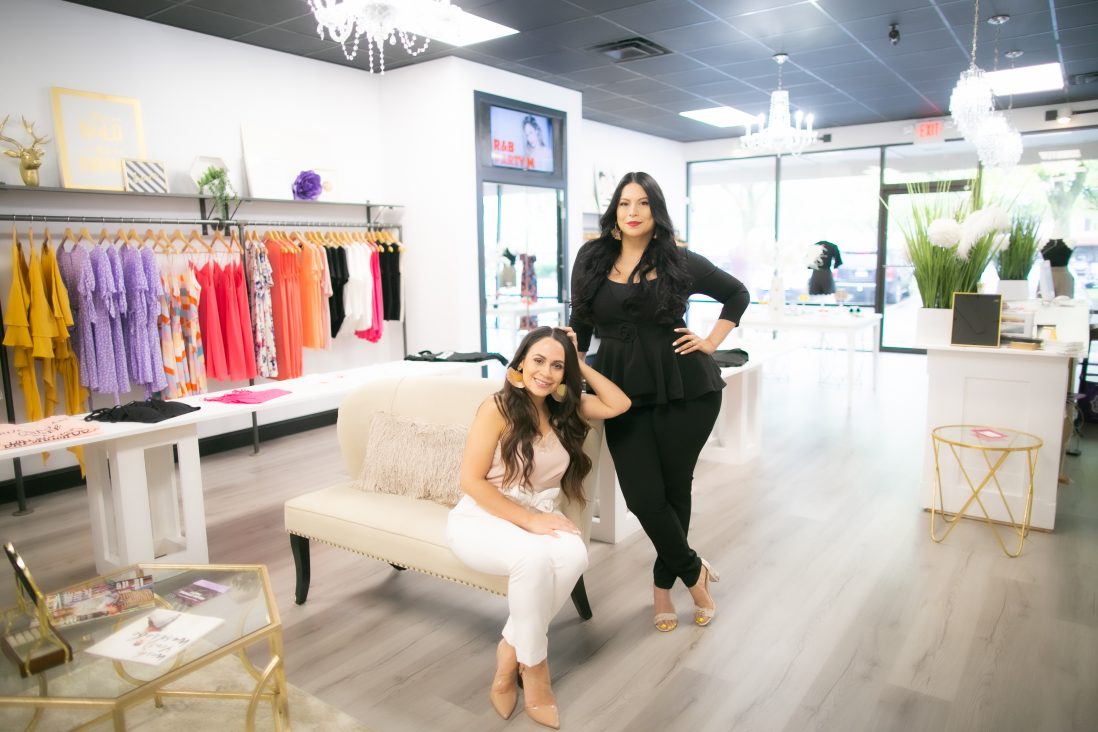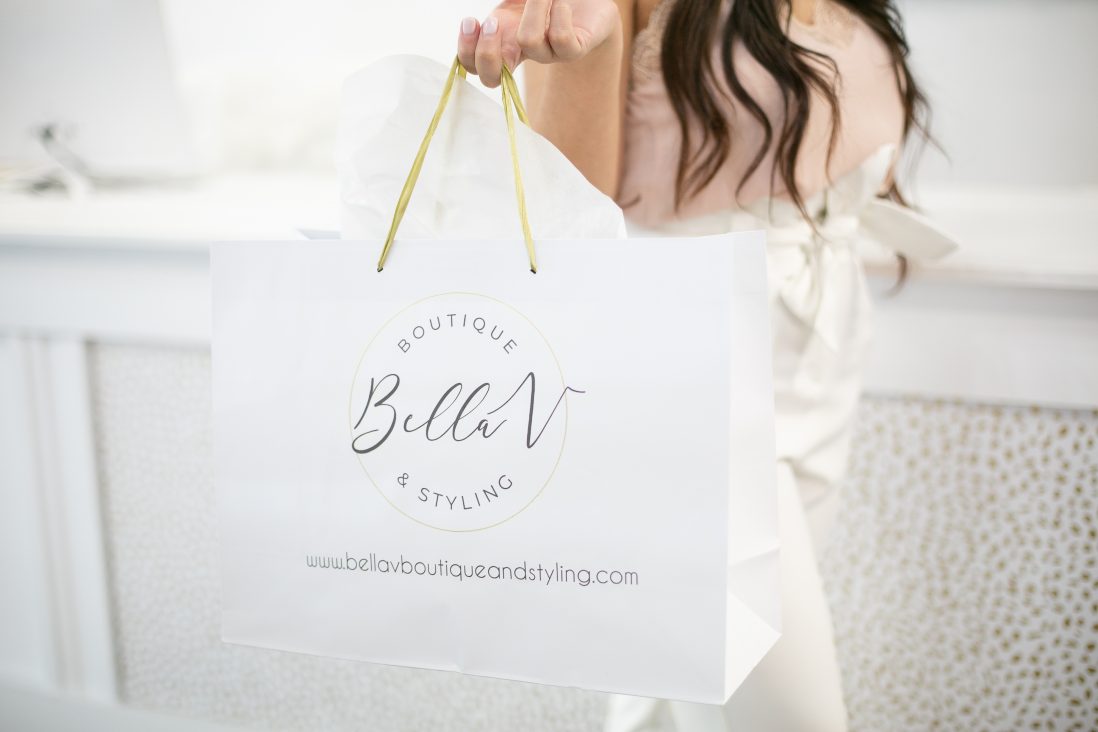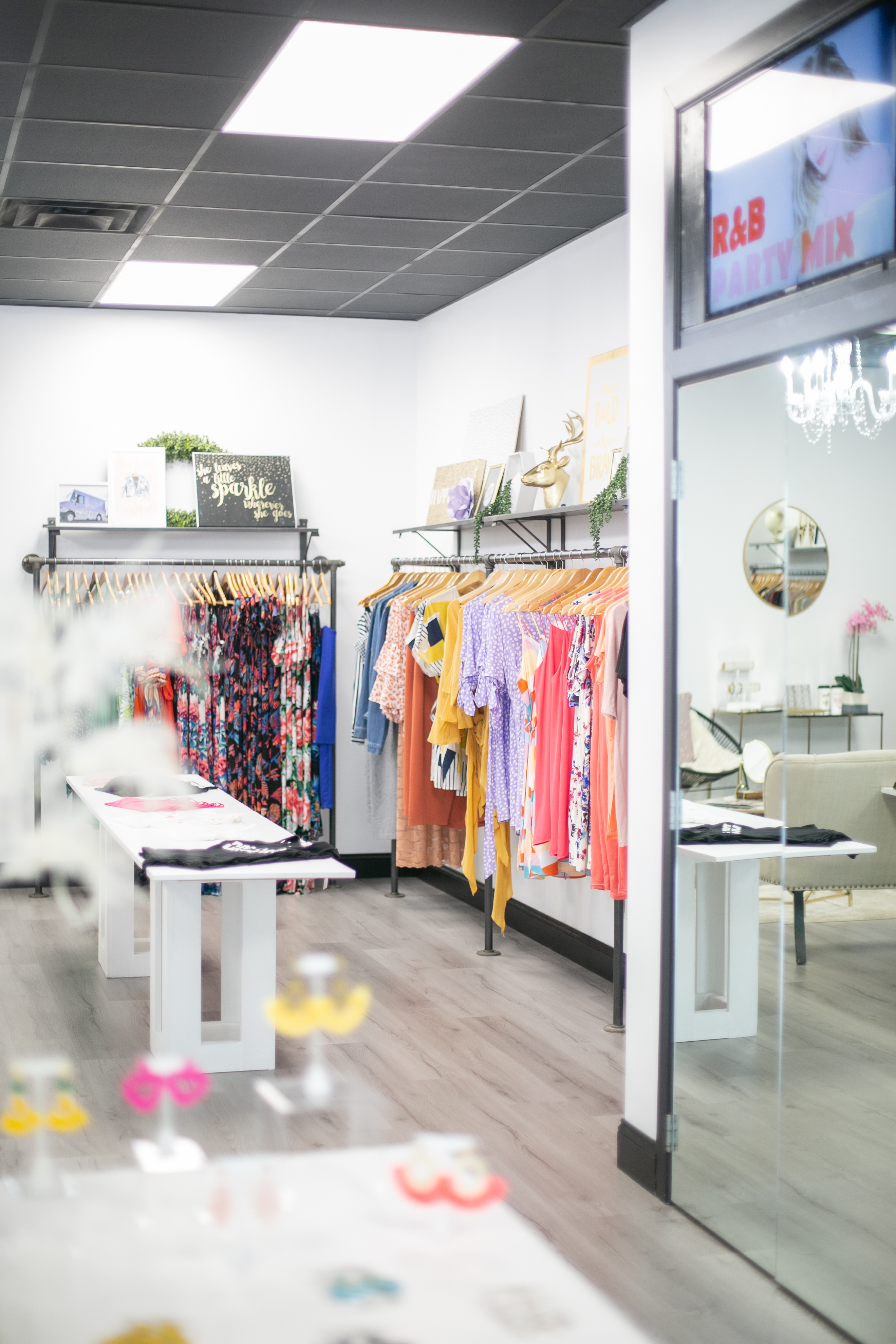All dressed up and nowhere to go
Fashion boutiques in upstate NY adapt to a sweatpants world

On March 20, Lorena Nazario walked through her empty boutique in Latham and showed a customer different pieces of clothing while they talked on FaceTime. Earlier that day she tried on clothing and took pictures for customers who wanted a sense of how the items would fit.
On the same day, all non-essential businesses in New York were required to close their brick and mortar outlets. Owners Nazario and Melissa Convertino had closed their shop, Bella V Boutique, four days earlier, recognizing the inevitable.
Since then, they’ve had to get creative to reach their customers. “I try my best to send them as many pictures of the items or a video of the item itself just so they could see the detail, the fabric, how it moves,” Nazario says.
The shuttering of the stores has left fashion brands and retailers scrambling to find ways to stay relevant in an increasingly fashion-less world. As people’s reasons for dressing in anything other than sweatpants disappear, the need to buy clothing other than loungewear disappears as well.
A March survey of U.S. consumers from Mckinsey & Company reports that 63 percent of people said they were planning to spend less on clothing than normal. That doesn’t mean all sales are down, though. The Business of Fashion reported that fashion search platform Lyst and retail analytics from Edited found that sportswear and loungewear are dominating search trends.
A disrupted supply chain and already struggling retail landscape have presented a bleak outlook for fashion retailers. Women’s Wear Daily reported that the consulting firm, Bain & Co., predicts the luxury clothing market will experience a sales decline of 25 to 30 percent in the first quarter of 2020. The Boston Consulting Group predicted that the drop in sales could be larger than during the Great Recession.

Nazario is trying her best to adapt to the situation by offering free shipping and 20 percent off all orders. “It’s just a little something we could do to give people a break,” Nazario says. “At the same time, we’re still trying to run our business. Because, yes, the store is closed, but we still have to pay rent.”
In-store sales make up roughly 80 percent of Bella V’s revenue. While Nazario is grateful for the increase in online sales that she’s seen since they’ve closed, she said it won’t make that much of a dent in their losses. She estimates that their online sales increased around 30 percent the first week the shop was closed but that has since tapered off. Nazario estimates that, by the time this is over, their losses will be around 75 percent.
Nazario started Bella V Boutique as a mobile boutique in 2014. It was something she had always wanted to do but the uncertainty of entrepreneurship made her hesitate. Then, two weeks after she gave birth to her second daughter, she lost vision in her eye and all feeling on her left side. She was diagnosed with a brain tumor and had to undergo radiation treatment.
Nazario has since recovered completely but said that the experience was the push that she needed to follow her dream. “I promised myself that I wasn’t going to live life with fear anymore,” Nazario says. “I was going to go for whatever I wanted to, and if it failed, it failed, but I was going to leave this earth without any regrets.”

Prior to opening Bella V Boutique, Nazario worked as a product development director in New York City. She knew when she first heard reports of the outbreak in China that their supply chain was going to be impacted. Lorena typically tries to order clothing from US factories and at first, this benefited her but when LA shut down so did the warehouses that they receive clothing from. “Obviously, if we don’t sell then we can’t afford more new merchandise,” said Lorena.
Daniel Tagliamonte just opened Sea Culture Brand in November, with Sakran and Shaw, a women’s clothing shop, in Skaneateles. His landlord has waived rent for April, but he’s unsure what will happen in the summer months.
Sea Culture has five factories that they work with on a regular basis. One of those factories is in Italy and the other is in Sri Lanka. Both countries are in lockdown. Luckily, some timing is on Tagliamonte’s side. The Italy factory will close right after they send out his fabric to Sri Lanka. “I mean, I’m not gonna be ordering fabric anytime soon,” Tagliamonte says. “But at least it’s getting to the factory to get turned into swimwear.”
A small boutique in Armory Square, Midnight Sun, is attempting to appeal to customers by offering what they call good vibes mystery packs. The items inside include candles, incense, jewelry, gemstones and coffee mugs. The small packs are $10 and large packs are $20.
After the mandate that all non-essential businesses close, it became uncertain if they would be able to continue offering the packs. Right now, availability will be based upon interest expressed on social media. Midnight Sun’s social media coordinator Eliza Jeffers said that the packs got a positive response when they were first released. “We have gotten a lot of people that are buying multiples of them because they want to share them with their friends or give them to their families,” Jeffers says.
Currently, Midnight Sun doesn’t have an online shop, but the coronavirus outbreak might be what pushes them to create one. Right now, their main customer outreach has been through social media. Jeffers said that people who don’t have the means to support through purchasing items could help by sharing and tagging people in social media posts.
Nazario understands that people are reluctant to spend money right now, especially on clothing they won’t wear anytime soon. She is hopeful that customers will move on from loungewear when the crisis is over. “I don’t think people are gonna want to shop for casual clothes,” she says. “They’re gonna be tired of wearing casual clothes. They’re going to want to dress up and put a pair of jeans on or a dress on.”

This article is part of the Fermata: Arts and Culture in the Time of Coronavirus series reported by students in the Critical Writing course at the Newhouse School. Fermata features stories on the impact of the pandemic on a wide range of artists and cultural figures, from musicians and comedians to restaurateurs and boutique owners.






